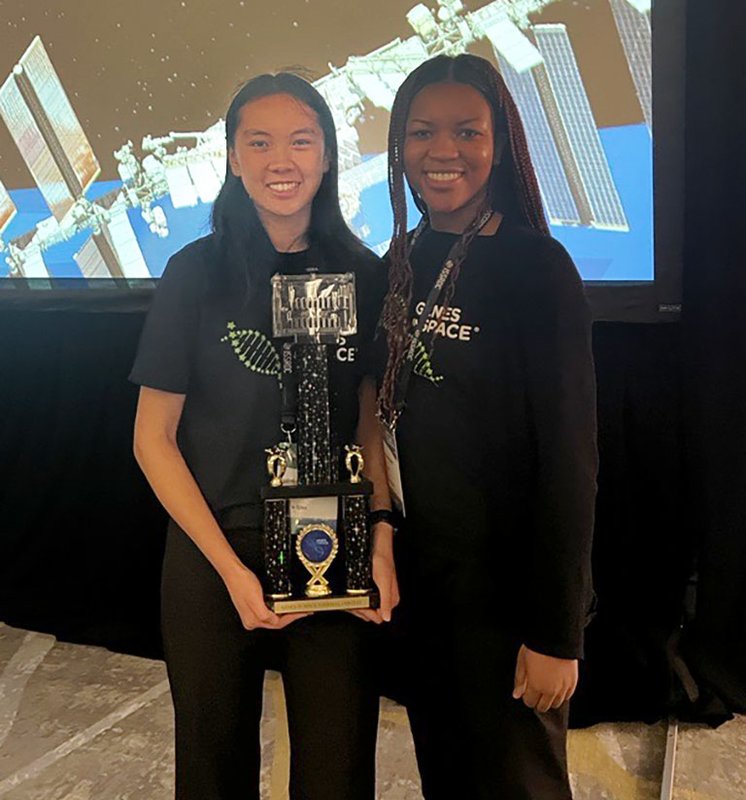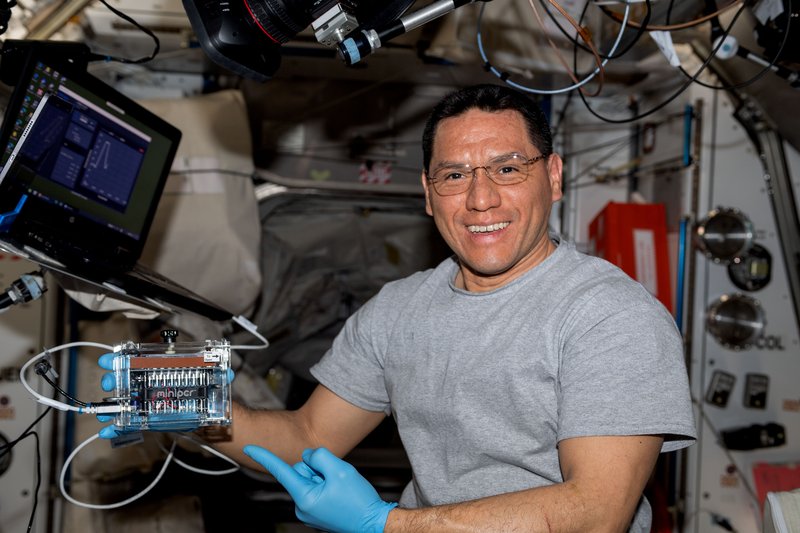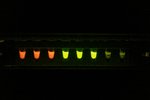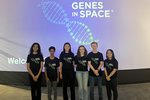2024 Genes in Space contest opens call for student proposals
Contest offers students a chance to launch a DNA experiment to the International Space Station
Cambridge, MA, Jan. 10, 2024 – Genes in Space, an annual biology competition that invites students to solve the challenges of living and working in space, has opened a call for proposals today. Each year, the contest asks students in grades 7-12 to design innovative DNA experiments for the International Space Station (ISS), with one winning experiment to be carried out by astronauts. The program, co-founded by miniPCR bio and Boeing, and supported by the ISS National Laboratory and New England Biolabs, aims to inspire the next generation of space scientists.

2023 Genes in Space winner Isabel Jiang (left) with 2022 winner Pristine Onuoha (right) at the ISS Research & Development Conference in Seattle last year (Photo Credit: ISS National Laboratory)
Genes in Space has students design novel DNA experiments that utilize the Genes in Space Toolkit, a suite of biotechnology tools available aboard the ISS. In the Toolkit, essential molecular biology techniques like polymerase chain reaction (PCR) sit alongside cutting-edge tools like BioBits, a cell-free protein expression system. Toolkit items share a common suitability for use in research environments like the ISS, where space and resources are limited.
“Students who participate in the Genes in Space competition have an opportunity to contribute significantly to our collective understanding of human health in space,” said Boeing's Scott Copeland, co-founder of Genes in Space. “They learn practical knowledge of molecular biology tools and foster a lifelong passion for the science of space exploration.”
Since the contest was founded in 2015, Genes in Space has launched ten experiments to the ISS. Winning students have been responsible for pioneering space biology achievements, including the first polymerase chain reaction (PCR) in space and the first use of CRISPR gene editing technology in space. Student Isabel Jiang of Hillsborough, CA, who won the 2023 contest, is preparing her experiment on mechanisms of viral reactivation in space for a 2024 launch.

Astronaut Frank Rubio carries out the Genes in Space-10 experiment aboard the International Space Station in July of last year (Photo credit: NASA)
The 2024 Genes in Space competition will close April 15. Contest participation does not require access to specialized equipment and is free to enter. Proposals may be submitted by individual students or pairs. All submissions must use the ISS as a testbed for space exploration.
Twenty-five awardees will win prize packages including miniPCR biotechnology kits for their educational institutions. Five Finalist teams will additionally receive mentoring from scientists and attend the 2024 ISS R&D Conference, where they will present their ideas to a panel of judges. The winner will attend Space Biology Camp and watch their experiment launch into space in 2025.
Media contacts:
miniPCR bio: Marc Bliss, genesinspace@minipcr.com, 781-990-8727
Boeing: Rebecca Regan, rebecca.a.regan@boeing.com 321-607-2297


